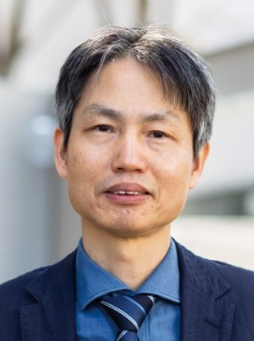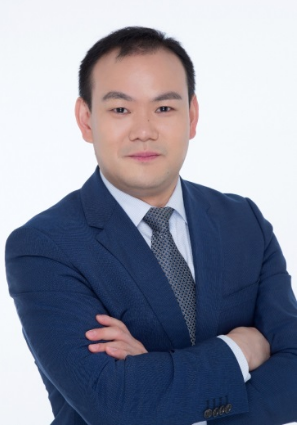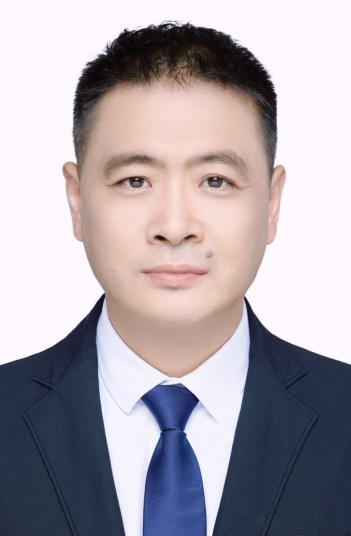
Convergent Research and Technology Convergence for Understanding and Protecting Human Health
Qun Jin, Professor
Department of Human Informatics and Cognitive Sciences
Waseda University, Japan

Abstract:
The grand challenges facing human society in 21st century, such as protecting human health, cannot be solved by one discipline alone. Comprehensive use of convergence knowledge, the merging of insights obtained through convergent research from widely diverse fields, can be expected to respond to these challenges. Convergence is a process that leads to the creation of new problem-driven solutions by inter-disciplinary collaborations. In this talk, after introducing the promising paradigm of convergent research and the concept of convergence knowledge, we will depict our vision on computing for human well-being and technology for the common good. We will further present our recent work on understanding and protecting human health through convergent research and with technology convergence of AI, big data, IoT and blockchain, such as AI-enhanced health data analysis for healthcare, living support and well-being promotion for the elder people.
Biography:
Qun Jin is a professor in the Department of Human Informatics and Cognitive Sciences, Faculty of Human Sciences, Waseda University, Japan. He has been extensively engaged in research works in the fields of computer science, information systems, and human informatics, with a focus on understanding and supporting humans through convergent research. His recent research interests cover behavior and cognitive informatics, health informatics, artificial intelligence and machine learning, big data, personal analytics and individual modeling, trustworthy platforms for data federation, sharing, and utilization, cyber-physical-social systems, and applications in healthcare and learning support and for the realization of a carbon-neutral society. He authored or co-authored several monographs and more than 400 refereed papers published in academic journals and international conference proceedings. He served as a general chair, program chair, and keynote speaker for numerous IEEE/ACM sponsored international conferences. He served as a guest editor in recent years for IEEE Transactions on Industrial Informatics, IEEE Transactions on Computational Social Systems, IEEE/ACM Transactions on Computational Biology and Bioinformatics, IEEE Transactions on Emerging Topics in Computing, IEEE MultiMedia, and IEEE Cloud Computing. He is a foreign fellow of the Engineering Academy of Japan (EAJ). More information can be found at https://researchmap.jp/jinqun/?lang=en.
Composite DP-unbias: Bounded and Unbiased Composite Differential Privacy
Jinjun Chen, Professor
School of Software and Electrical Engineering
Swinburne University of Technology

Abstract:
The most kind of traditional DP (Differential Privacy) mechanisms (e.g. Laplace, Gaussian, etc.) have unlimited output range. In real scenarios, most datasets have bounded output range. Users would then need to use post-processing or truncated mechanisms to forcibly bound output distribution. However, these mechanisms would incur bias problem which has been a long-known DP challenge, resulting in various unfairness issues in subsequent applications. A tremendous amount of research has been done on analyzing this bias problem and its consequences, but no solutions can solve it fully.
As the world first solution to solve this long-known DP bias problem, this talk will present a new innovative DP mechanism named Composite DP-unbias. It will first illustrate this long-known bias problem, and then detail the rational of the new mechanism and its example noise functions as well as their implementation algorithms. All source codes are publicly available on Github for any deployment or verification.
Biography:
Dr Jinjun Chen is a Professor from Swinburne University of Technology, Australia. He holds a PhD in Information Technology from Swinburne University of Technology, Australia. His research interests include data privacy and security, cloud computing, scalable data processing, data systems and related various research topics. His research results have been published in more than 300 papers in international journals and conferences. He received various awards such as IEEE TCSC Award for Excellence in Scalable Computing and Australia’s Top Researchers. He has served as an Associate Editor for various journals such as ACM Computing Surveys, IEEE TC, TCC and TSUSC. He is a MAE (Academia Europea) and IEEE Fellow (IEEE Computer Society). He is Chair for IEEE TCSC (Technical Community for Scalable Computing).
Cyber-Physical-Social Intelligence
Laurence T. Yang
FCAE, FEIC, MAE, FIEEE, FIET
Zhengzhou University, China

Abstract:
The booming growth and rapid development in embedded systems, wireless communications, sensing techniques and emerging support for cloud computing and social networks have enabled researchers and practitioners to create a wide variety of Cyber-Physical-Social Systems (CPSS) that reason intelligently, act autonomously, and respond to the users’ needs in a context and situation-aware manner, namely Cyber-Physical-Social Intelligence. It is the integration of computation, communication and control with the physical world, human knowledge and sociocultural elements. It is a novel emerging computing paradigm and has attracted wide concerns from both industry and academia in recent years.
This talk will present our latest research on Cyber-Physical-Social Intelligence. Corresponding case studies in some typical applications will be shown to demonstrate the feasibility and flexibility.
Biography:
Laurence T. Yang got his BE in Computer Science and Technology and BSc in Applied Physics both from Tsinghua University, China and Ph.D in Computer Science from University of Victoria, Canada. He is the Academic Vice-President and Dean of School of Computer Science and Artificial Intelligence, Zhengzhou University, China. His research includes Cyber-Physical-Social Intelligence. He has published 400+ papers in the above area on top IEEE/ACM Transactions with total citations of 41163 and H-index of 100 including 8 and 41 papers as top 0.1% and top 1% highly cited ESI papers, respectively.
His recent honors and awards include the member of Academia Europaea, the Academy of Europe (2021), the John B. Stirling Medal (2021) from Engineering Institute of Canada, IEEE Sensor Council Technical Achievement Award (2020), IEEE Canada C. C. Gotlieb Computer Medal (2020), Clarivate Analytics (Web of Science Group) Highly Cited Researcher (2019, 2020, 2022, 2023), Fellow of Institution of Engineering and Technology (2020), Fellow of Institute of Electrical and Electronics Engineers (2020), Fellow of Engineering Institute of Canada (2019), Fellow of Canadian Academy of Engineering (2017), etc.
The Application of AI in Neurological System Diseases
Bo Gao MD., Professor and Chairman
Department of Radiology
Affiliated Hospital of Guizhou Medical University, China

Abstract:
The application of artificial intelligence in neurological diseases is rapidly advancing and shows great potentials. By utilizing deep learning and machine learning algorithms, AI can identify complex patterns from vast amounts of neuroimaging data, improving the accuracy of early diagnosis and classification of diseases. For instance, in diseases such as Alzheimer's, Parkinson's, and multiple sclerosis, AI can automatically analyze key features in MRI and CT scans, assisting doctors in making more precise judgments. Additionally, AI predictive models can help track disease progression, supporting the development of personalized treatment plans and improving patient outcomes. In the detection and surgical planning of brain tumors, AI also plays an important role by assisting surgeons in better planning surgical paths while preserving healthy brain tissue. Although we face challenges such as data privacy and algorithm transparency, research in AI applications in fields of neurological diseases continues to advance, which would bring significant changes to neurosurgery and neurology in the near future.
Biography:
Professor Gao Bo is a distinguished expert in medical imaging, currently serving as the Chairman of the Department of Radiology at the Affiliated Hospital of Guizhou Medical University and the Director of the Key Laboratory of Brain Science at Guizhou Medical University. He is also the Executive Editor of the journal 《iRADIOLOGY》. Professor Gao has a profound research background and extensive practical experience in the fields of neuroimaging, functional, and molecular imaging. In terms of scientific research, Professor Gao has led over ten national and provincial-level research projects and has received eight scientific achievement awards. He has published more than 100 academic papers, with over 60 indexed by SCI, and has authored more than ten textbooks and monographs in both Chinese and English. His outstanding contributions have earned him numerous honors, including being recognized as Provincial Expert, a Provincial Special Allowance Expert, member of Guizhou Province "Thousand Talents Program for Innovation and Entrepreneurship," and recipient of Chinese Medical Association Young Scientist Award.